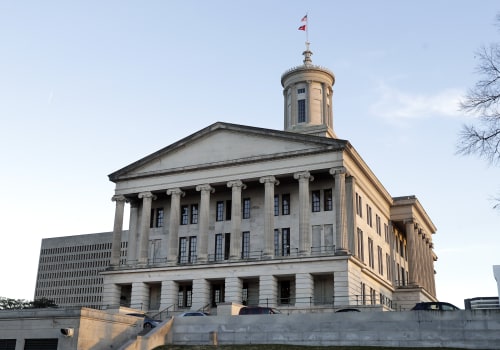Since 80% of crimes in Tennessee have a drug-related link, it is essential to understand the legal implications of substance abuse in the state. The Division of Pharmacological Therapies, which is part of the SAMHSA Substance Abuse Treatment Center, is responsible for overseeing accreditation standards and certification processes. The SAMHSA Substance Abuse Prevention Center is responsible for overseeing HHS certified laboratories that operate under the mandatory guidelines of federal workplace drug testing programs. Students should be aware that if they test positive for alcohol, illegal substances, or substances without a current and valid prescription, the MTSA is required to report such violation of the drug and alcohol policy to the State Board of Nursing.
The Act also allows SAMHSA to consolidate discretionary grant authorities, giving the Secretary of HHS more flexibility to respond to individuals and communities in need of mental health and substance abuse services. While the dangers of illegal drugs and the misuse of legal drugs continue to evolve, it is up to law enforcement officials — and the public — to remain vigilant in the fight against these substances. Federal regulations apply to states, local governments, and faith-based organizations that receive block grants for the prevention and treatment of substance abuse or grants for projects to assist the transition of homelessness, or both. In addition, possession of a controlled substance can result in the denial of federal benefits, such as student loans, scholarships, professional and commercial contracts and licenses, and the confiscation of personal and real property used to transport, conceal, or facilitate such possession.
Tennessee doctors should consult the Controlled Substance Monitoring Database (CSMD) before prescribing controlled substances, especially opioids and benzodiazepines. The penalty imposed depends on many factors, including the type and amount of the controlled substance used; the number of previous crimes, if any; whether the use of that substance caused death or serious bodily injury; and whether any other crime was committed in connection with the use of the controlled substance. CARA is also re-authorizing a grant program for residential treatment of opioid addiction for pregnant and postpartum women and their children, and creates a pilot program for state substance abuse agencies to address identified gaps in continuity of care, including non-residential treatment services. The SAMHSA Substance Abuse Prevention Center oversees the implementation of the Synar Amendment and may withhold block grant funds for the prevention and treatment of substance abuse from states that do not meet Synar requirements.
Prescription drug abuse is having devastating consequences in Tennessee, including overdose deaths, rising hospital costs and emergency room visits, detention of children in state custody, and incarceration for drug-related crimes. The state may also seize a vehicle used to transport or conceal controlled substances. In addition, possession of a controlled substance may lead to ineligibility to receive or purchase a firearm. It is essential for individuals living in Middle Tennessee to be aware of all legal implications related to substance abuse.
Not only can it lead to criminal charges but also denial from federal benefits such as student loans or scholarships. Furthermore, it can result in confiscation of personal property used to transport or conceal controlled substances. The SAMHSA Substance Abuse Treatment Center is responsible for overseeing accreditation standards while SAMHSA Substance Abuse Prevention Center oversees HHS certified laboratories that operate under mandatory guidelines for federal workplace drug testing programs. CARA is re-authorizing a grant program for residential treatment of opioid addiction for pregnant women and their children as well as creating a pilot program for state substance abuse agencies to address identified gaps in continuity of care.
The Synar Amendment requires states to meet certain standards related to substance abuse prevention or risk losing block grant funds from SAMHSA Substance Abuse Prevention Center. Tennessee doctors are advised to consult CSMD before prescribing controlled substances such as opioids or benzodiazepines. Possession of a controlled substance can lead to severe penalties depending on various factors such as type and amount used as well as any other crime committed in connection with its use.







